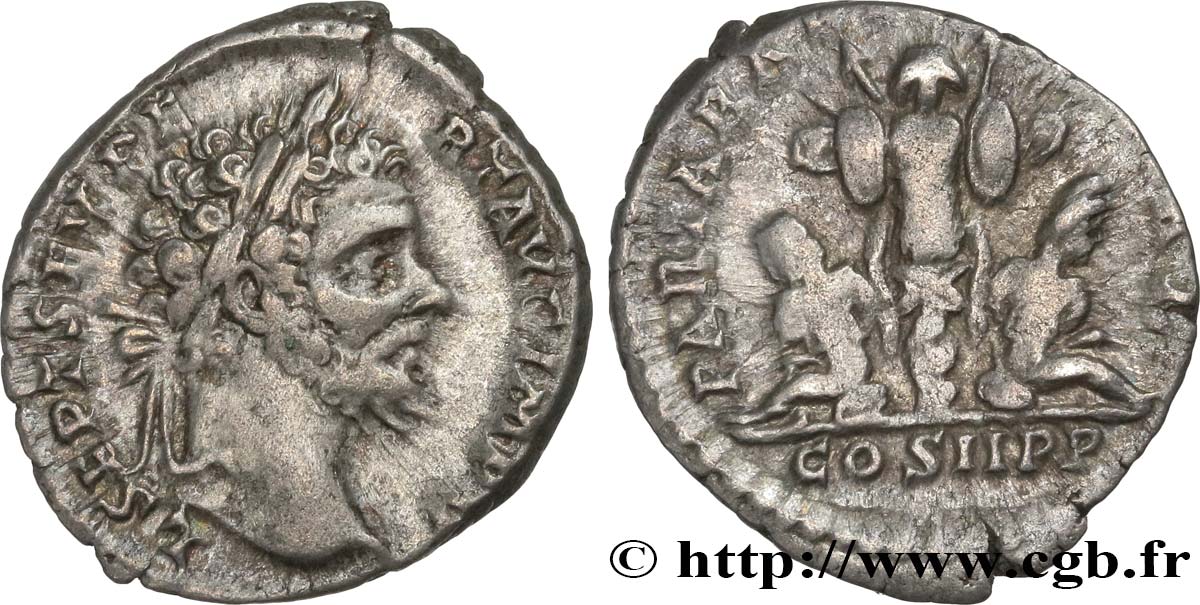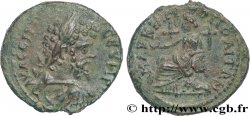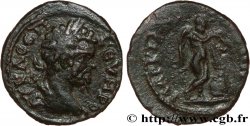brm_680010 - SEPTIMIUS SEVERUS Denier
Not available.
Item sold on our e-shop (2021)
Price : 75.00 €
Item sold on our e-shop (2021)
Price : 75.00 €
Type : Denier
Date: 198
Mint name / Town : Laodicée
Metal : silver
Diameter : 19 mm
Orientation dies : 7 h.
Weight : 2,68 g.
Rarity : R2
Officine: 3e
Coments on the condition:
Flan ovale, bien centré. Joli portrait. Traces de circulation plus importantes au revers. Patine grise
Catalogue references :
Obverse
Obverse legend : L SEPT SEVER PE-RT AVG P M IMP XI.
Obverse description : Tête laurée de Septime Sévère à droite (O*).
Obverse translation : "Lucius Septimus Severus Pertinax Augustus Pontifex Maximus Imperator undecimum" (Lucius Septime Sévère Pertinax auguste grand pontife revêtu de la onzième acclamation impériale).
Reverse
Reverse legend : PAR ARAB TR P VI/ -|-// COS II P P.
Reverse description : Trophée au pied duquel sont assis deux captifs.
Reverse translation : "Parthicus Arabicus Tribunicia Potestate sextum consul iterum pater patriæ" (Vainqueur des Parthes et Arabes revêtu de la sixième puissance tribunitienne consul pour la deuxième fois père de la patrie).
Commentary
Poids léger. Rubans de type 2.








 Report a mistake
Report a mistake Print the page
Print the page Share my selection
Share my selection Ask a question
Ask a question Consign / sell
Consign / sell
 Full data
Full data



